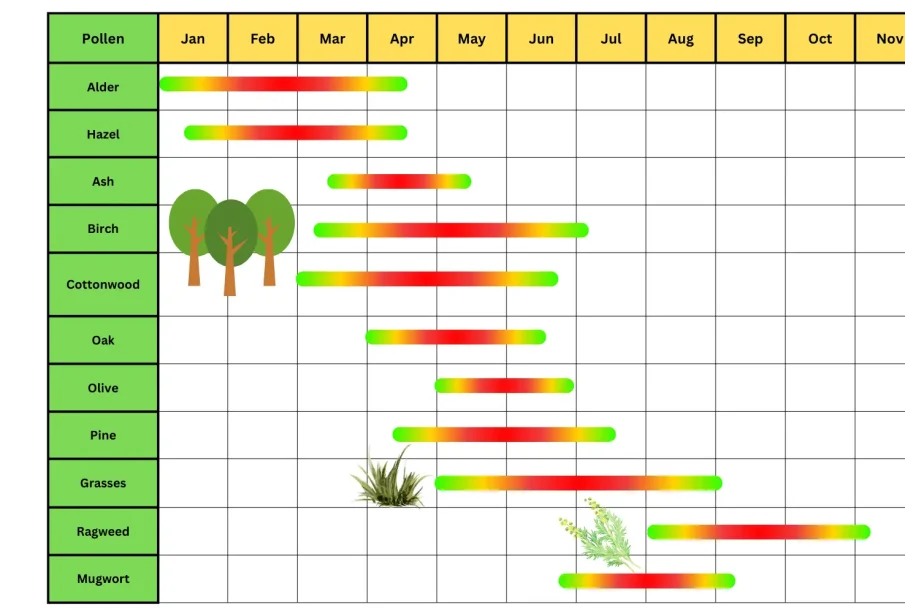Understanding Today’s Pollen Count and Its Impact on Health

Importance of Pollen Count
Pollen count is a crucial factor for many individuals, especially those suffering from allergies and respiratory issues. Understanding the pollen levels in the air can significantly modify one’s daily activities, especially for allergy sufferers. As seasonal changes occur and various plants pollinate, it’s important to stay updated on current pollen counts to manage health effectively.
Pollen Count Today
As of today, October 5th, 2023, the pollen count across many regions in the United Kingdom is showing moderate levels. Grass pollen is on the decrease as we transition into autumn, but tree pollen, particularly from birch and oak, may still contribute to allergens in the air. Reports indicate that urban areas tend to experience varied pollen counts compared to rural areas, with cities often having higher counts due to the increased presence of certain flora.
According to the UK Met Office, pollen counts range from low, moderate, high, and very high, with today’s measurements placing many regions at a moderate level. This translates to potential allergic reactions in individuals sensitive to certain types of pollen.
Impact on Health
For those with hay fever, moderate pollen counts can lead to symptoms such as sneezing, runny noses, and itchy eyes. The NHS advises allergy sufferers to stay indoors during peak pollen times, typically in the early morning and late afternoon. Regularly checking pollen levels can help in planning outdoor activities, reducing exposure and managing allergies more effectively.
Conclusion and Recommendations
In conclusion, keeping tabs on the pollen count today is essential for maintaining good health during the allergy season. With the current moderate levels observed, individuals who are prone to allergies should take precautions such as using air purifiers, keeping windows closed, and taking antihistamines if necessary. In the following days, it would be wise to monitor the pollen forecasts, as weather conditions can shift these counts rapidly.
Looking ahead, the trend indicates that as we move deeper into autumn, pollen levels may continue to decline, offering some respite for allergy sufferers. Nevertheless, being proactive in checking daily updates will ensure that individuals remain informed and can better manage their health.








